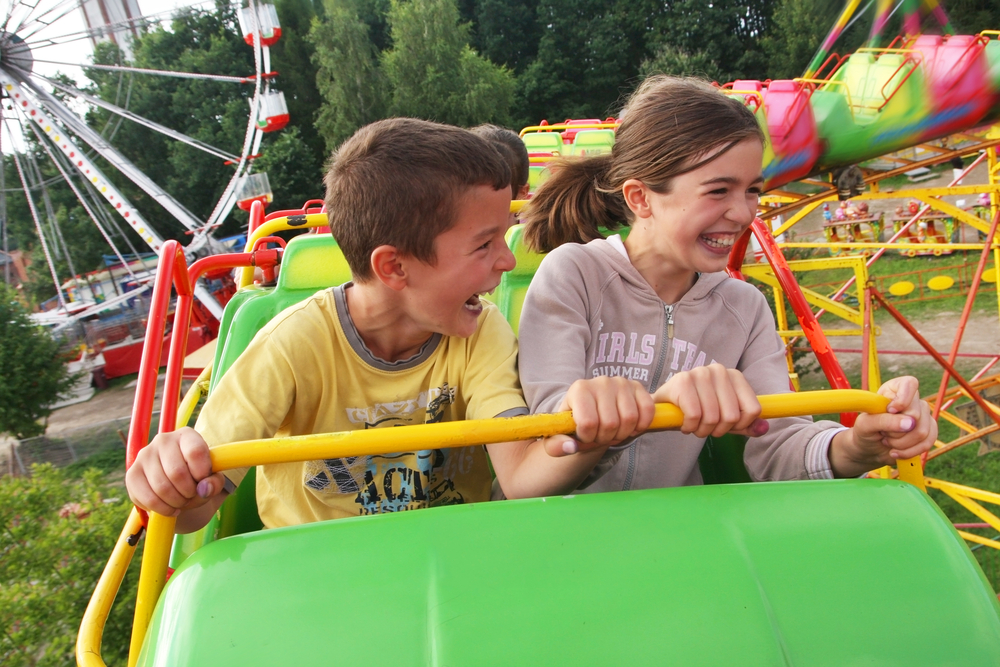 Amusement parks are a common outing for families during the summer time. Most of the time, these outings go off without a hitch—except, perhaps, for a few tantrums along the way. But what happens if your family outing turns into a hospital trip? If you or someone you’re with is injured at a theme park, can the park be held liable, or is it considered an acceptable risk when you enter the premises? Keep reading to learn more about premises liability, and where the line is drawn between accepted risks and neglectful actions.
Amusement parks are a common outing for families during the summer time. Most of the time, these outings go off without a hitch—except, perhaps, for a few tantrums along the way. But what happens if your family outing turns into a hospital trip? If you or someone you’re with is injured at a theme park, can the park be held liable, or is it considered an acceptable risk when you enter the premises? Keep reading to learn more about premises liability, and where the line is drawn between accepted risks and neglectful actions.
Understanding Premises Liability
Theme parks are a business, just like your local grocery store or restaurant. As such, the park is responsible for maintaining their property to reasonably mitigate the risk of injury. No matter how intense the rides or how large the wave pool, the park must make every effort to prevent injuries on the premises.
Premises liability helps to protect guests on commercial property from injuries caused by the property owner’s neglect. So, if you or a family member suffers an injury as a direct result of the park’s neglect, this would fall under premises liability, and the park could be liable for those injuries and the resulting costs. Let’s dig a little deeper and discuss some further tenants of premises liability and how it may apply to an amusement park.
Types of Individuals on the Premises
First, it’s important to understand that premises liability only applies to individuals who are legally in the amusement park. This means that if the injured individual has snuck into the park instead of paying to enter, they are now considered a trespasser, and the park has very limited responsibility for ensuring that person’s safety. Their only responsibility is to not intentionally cause harm to trespassers.
Assuming, however, that you have paid to enter the park, you are now considered an invitee, and this means that the park’s responsibility to maintain a safe environment (known as “duty of care”) extends to you. That includes maintaining all rides, walkways, buildings, and other features that guests have access to. If there is an unsafe environment anywhere in the park, and the operator knows or should have known about that dangerous condition, they have a responsibility to warn all guests of those conditions. Failing to do so is considered a breach of their duty of care.
Noting Dangerous Conditions and Restricted Areas
As mentioned above, a theme park’s “duty of care” to their guests includes clearly marking areas that could present a physical danger. An obvious example of this would be placing signs denoting restricted access to areas like mechanical rooms and animal enclosures, or roping off a damaged section of walkway and redirecting traffic around that area. Any environment that presents a danger to a legal guest of the park must be clearly marked. If it’s not, the park can be held liable for any injuries that occur in that area as a result of the dangerous conditions.
However, if the dangerous condition is clearly marked and a guest chooses to ignore that sign, the park is no longer liable. They have fulfilled their duty of care, and the guest was injured due to their own actions.
When Can the Park Be Held Liable?
Now that we’ve discussed a few general elements of premises liability and how it applies to theme parks, let’s go over a few examples of common causes of theme park injuries for which the park could be held liable:
If you or a family member is injured a theme park, contact The Harr Law Firm today for help filing a case and claiming compensation for your injuries.